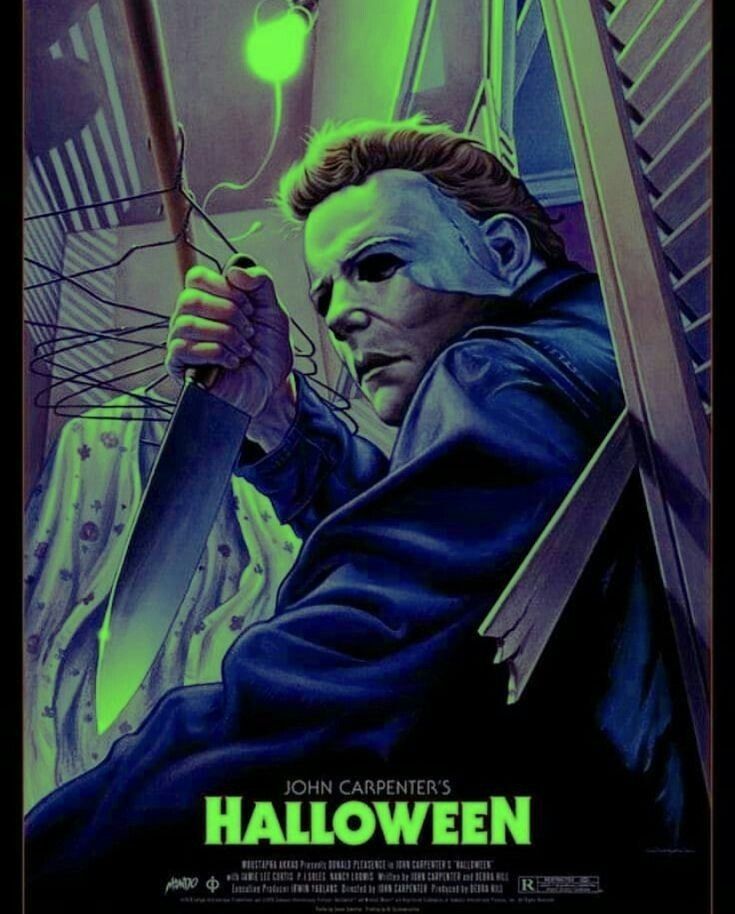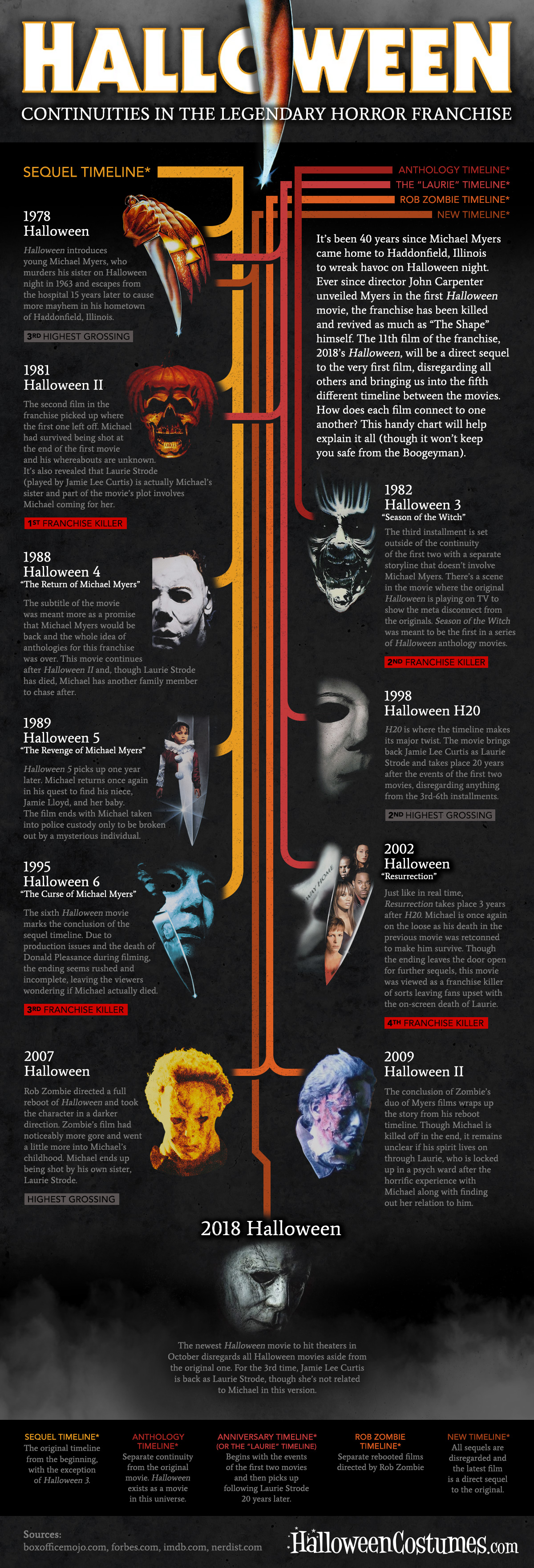Music
The Enduring Legacy of Michael Myers Exploring the Cultural Impact of the Halloween Movie Franchise
The Michael Myers phenomenon has captivated horror enthusiasts and film aficionados alike since the iconic slasher’s first appearance in the 1978 classic “Halloween.” Far more than just a simple tale of a masked killer, the Halloween franchise has woven a tapestry of social commentary, psychological depth, and cultural relevance that has endured for over four decades. In this comprehensive exploration, we delve into the nuances of Michael Myers’ character, the evolution of the franchise, and the lasting impact it has had on the horror genre and beyond.
The Shaping of an Icon: Michael Myers and the Birth of a Slasher Legend

The character of Michael Myers, introduced in the original “Halloween” film, has become an enduring icon of the horror genre. As a silent, enigmatic, and seemingly indestructible killer, Myers embodies the primal fears and anxieties that have haunted humanity for centuries. His blank, emotionless mask and relentless pursuit of his victims have become instantly recognizable hallmarks of the franchise.
Unmasking the Psyche of a Killer
At the heart of Michael Myers’ appeal lies the complex psychological underpinnings of his character. The original film’s exploration of his troubled childhood and the trauma that shaped him into a cold-blooded murderer provided a depth and nuance that set the character apart from the stereotypical slasher villains of the era. The film’s examination of the line between good and evil, and the notion that even the most seemingly innocuous individuals can harbor a capacity for unspeakable violence, struck a chord with audiences and critics alike.
The Enduring Symbolism of the Mask

The iconic white mask worn by Michael Myers has become a symbol of pure, unadulterated fear in popular culture. The mask’s anonymity and lack of expression serve to dehumanize the character, transforming him into a vessel for the audience’s deepest terrors. This symbolic representation of the unmasking of the human psyche, and the inherent darkness that lurks within us all, has made the mask a powerful and enduring icon.
The Primal Fears and Societal Anxieties Reflected in the Franchise
Beyond the individual character of Michael Myers, the Halloween franchise has consistently tapped into the primal fears and societal anxieties that have plagued humanity throughout history. From the fear of the unknown and the unseen, to the struggle between the forces of good and evil, the franchise has explored the dark underbelly of the human condition with an unflinching gaze.
The Evolution of the Franchise: Adapting to the Times, Maintaining the Essence

The Halloween franchise has undergone a remarkable transformation over the decades, with each new installment adapting to the cultural and social landscapes of its respective era. From the grounded, psychologically driven original film to the high-octane, action-packed sequels, the franchise has consistently found ways to reinvent itself while still preserving the core essence of the Michael Myers character and the underlying themes that have made it so compelling.
Tracing the Narrative Shifts and Thematic Evolutions
As the franchise has progressed, the narrative and thematic focus has shifted to reflect the changing societal concerns and cinematic trends of each era. The early sequels delved deeper into the psychological motivations of Michael Myers, exploring the nature of evil and the cycle of violence. Later installments grappled with the impact of trauma and the search for redemption, while more recent entries have tackled issues of generational trauma and the legacy of violence.
Adapting to Changing Cinematic Landscapes
The visual and stylistic evolution of the Halloween franchise has mirrored the broader shifts in the horror genre and the film industry as a whole. From the gritty, atmospheric visuals of the original film to the more polished, high-octane aesthetics of the later sequels, the franchise has consistently found ways to stay relevant and engaging for modern audiences.
The Significance of Reboots and Reimaginings
The periodic reboots and reimaginings of the Halloween franchise have served to breathe new life into the mythos while also exploring the enduring relevance of Michael Myers and the themes that have made the franchise so iconic. These reinventions have allowed the franchise to engage with contemporary social and cultural issues, while also paying homage to the foundational elements that have made it a horror staple.
The Cultural Significance and Lasting Impact of the Halloween Franchise

The Halloween franchise has transcended its origins as a simple slasher film and has become a cultural touchstone that reflects the deepest fears and anxieties of the human condition. From its impact on the horror genre to its resonance with wider societal issues, the franchise has left an indelible mark on the collective consciousness.
The Enduring Influence on the Horror Genre
The success and impact of the original “Halloween” film, and the subsequent franchise, have had a profound impact on the horror genre as a whole. The film’s innovative use of suspense, its focus on the psychology of the killer, and its iconic visual motifs have become staples of the slasher subgenre, influencing countless filmmakers and shaping the trajectory of horror cinema.
Exploring the Deeper Social and Psychological Themes
Beyond its genre-defining contributions, the Halloween franchise has consistently grappled with deeper social and psychological themes that have resonated with audiences. The exploration of the nature of evil, the cycle of violence, the impact of trauma, and the search for redemption have all been woven into the tapestry of the franchise, making it a rich and multilayered experience for viewers.
The Lasting Cultural Legacy and Iconography
The enduring cultural legacy of the Halloween franchise is undeniable. Michael Myers’ iconic mask has become a Halloween staple, adorning everything from costumes to decorations, and has transcended the boundaries of the film series to become a symbol of horror and the macabre in popular culture. The franchise’s ability to tap into the primal fears and anxieties of the human condition has ensured its longevity and cemented its status as a horror classic.
The enduring legacy of Michael Myers and the Halloween franchise is a testament to the power of storytelling and the enduring appeal of the horror genre. From its humble beginnings as a low-budget slasher film to its current status as a cultural phenomenon, the franchise has consistently found ways to captivate and engage audiences, exploring the darkest corners of the human psyche and the complex interplay between good and evil.
As the franchise continues to evolve and adapt to the changing times, the character of Michael Myers and the themes that have made the Halloween franchise so iconic will undoubtedly continue to resonate with audiences, serving as a chilling reminder of the darkness that lurks within us all and the fragility of the human condition. The enduring allure of Michael Myers and the Halloween franchise is a testament to the enduring power of horror to explore the depths of the human experience and the universal truths that bind us all.
